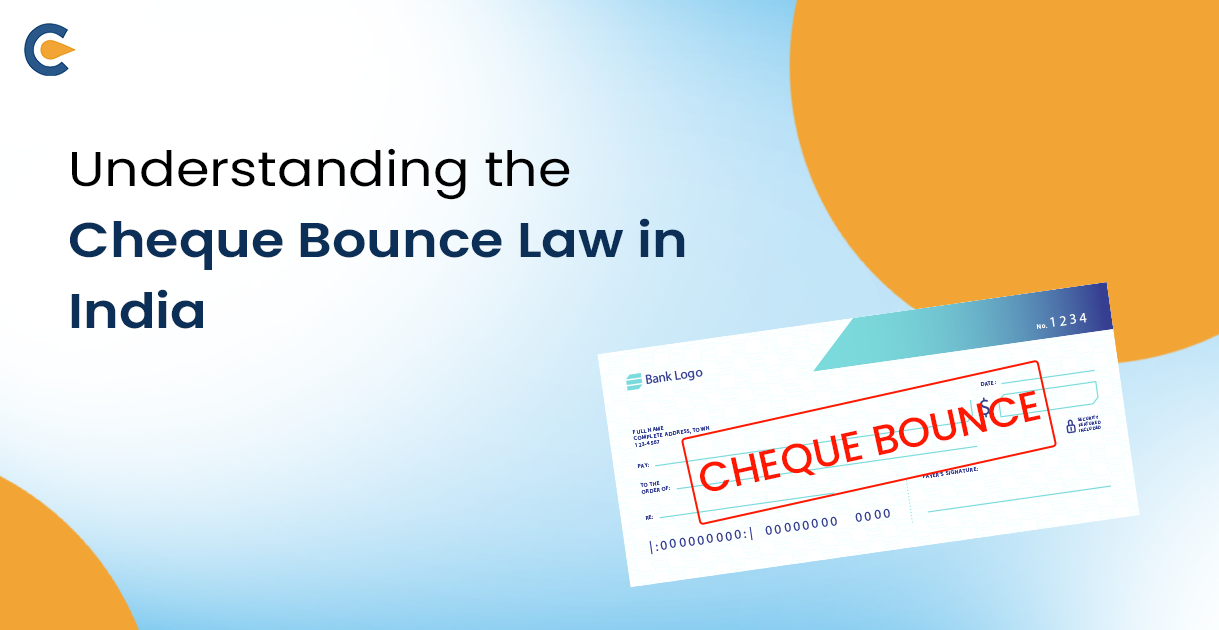The Negotiable Instruments Act of 1881 lays the cheque bounce law and the penalties included in the case of dishonour of the cheque. The punishment can be double the amount of which the cheque was issued or an imprisonment of up to two years or even both, depending on the nature of the offence. There can be many reasons for a cheque to bounce, but if the cheque is bounced because of insufficient money in the bank, then there can be a criminal case filed against the person even if his intentions were not wrong. There can be penalties levied on the drawer by the bank, or a criminal case or a civil suit for recovery of money can be filed against the drawer. There can be repercussions for the drawer while asking for a loan in the future because of the previous cheque bounce.
New Cheque Bounce Law
A new law on cheque bounce was passed by the Reserve Bank of India in August 2021, which says that whoever is involved in several cheque-based transactions has to maintain a minimum amount in his/ her accounts at all times. The rule is applicable for all public and private banks, and if the minimum balance is not maintained and the cheque gets bounced, then in that case, the drawer has to pay a penalty to the bank.
Issuance of notice under Section 138 of The Negotiable Instruments Act
In the case where a cheque in favour of the payee got dishonoured because of insufficient funds in the drawer’s account, then as per the Cheque Bounce Law, the payee can initiate criminal proceedings against the drawer according to Section 138 of The Negotiable Instruments Act. To file a case, firstly, the payee has to send a legal notice to the drawer within thirty days of the notification of such bounce. The payee has to give 15 days to the drawer after he/ she has received the notice to pay the due amount. When the payee has sent the legal notice, and the drawer pays the due cheque amount, then no criminal case can be initiated.
In case the drawer fails to pay the amount within fifteen days of receiving the legal notice, the payee can file a criminal case against the drawer for cheque bounce under Section 138 of The Negotiable Instruments Act.
Jurisdiction
The jurisdiction to file the case as per the Cheque Bounce Law can be –
- The place from where the cheque was taken through the drawer
- The place of cheque presentation for payment
- The place of payment
- The place where dishonour of cheque took place
- Place of residence or business of the drawer or where service of legal notice took place
Procedure Followed as per section 138 of the Negotiable Instruments Act, 1881
There is a set legal procedure that needs to be followed by the plaintiff to file a case under the cheque bounce law in the court having jurisdiction over the matter.
- A complaint has to be filed by the payee before the magistrate within 30 days of the expiry period of 15 days since the notice was served to the drawer as per the cheque bounce law.
- The complaint should contain the details of the court, details of the parties, facts of the case, cheque details with the amount, a memo of cheque bounce received via bank, and other necessary details of the case.
- If the magistrate is satisfied with the applicability of the case, then he/ she issues a summon against the drawer of the cheque to appear in court with a defence.
- If the drawer accepts the facts and decides to do the settlement out of court, then he/ she can pay a basic fine and the cheque amount. If he contests the facts of the case, then a criminal case will go on. The statements of the drawer would be taken accordingly.
- In case the drawer is found guilty, then he/ she will be liable to pay the maximum double amount of the cheque along with the fine or even imprisonment of up to 2 years.
Relevance of Section 144 of The Negotiable Instruments Act
Section 144 of The Negotiable Instruments Act states that a judge can issue a summon for the presence of the accused or even a witness to the act. As per section 144 of The Negotiable Instruments Act, the summon has to be sent to the residential address of the accused/ witness, the place of workplace, or the place of business through a court-recognised delivery company or a speed post.
Section 144 of The Negotiable Instruments Act also states that if the delivery is made and the person to whom the notice was issued has either accepted it or rejected it and the delivery company claims that then in that case, the serving of the summon would be termed as completed and if that person doesn’t come to the court on the next hearing, then the case may go on and the judge may continue the court proceedings accordingly.
Conclusion
The offence of cheque bounce is considered to be serious, and this is why it is considered a criminal offence under the cheque bounce law. It should be noted that the reason for cheque bounce can be many, but only an insufficient amount in the drawer’s account is considered while filing a suit against the drawer. If a cheque is bounced because of the different amounts mentioned in the numbers and lettersform, then there can be no proceedings as per the cheque bounce law. The payee has to check the details of the cheque before accepting it from the drawer.
Corpbiz can help individuals when their cheque has been bounced, and the drawer refuses to pay the amount that is due to him/ her.
Frequently Asked Questions
Where is the summon served?
As per section 144 of The Negotiable Instruments Act, the summon has to be sent to the residential address of the accused/ witness, the place of workplace, or the place of business through a court-recognised delivery company or a speed post.
Can a cheque bounce case not be filed even after insufficient balance in the drawer’s account?
Yes, in case the cheque issued by the drawer was to give a gift for a donation or for any object that is not legally enforceable.
Is it possible to deposit the bounced cheque again?
Yes, if the cheque has been bounced, it can be deposited again within three months of the date of issue since, after that, it will expire.
Can an accused get bail against cheque bounce charges?
Yes, the cheque bounce law permits the granting of bail to the accused while the case is on trial. The accused needs to furnish a bail bond to get bail against his/ her sentence.
Under which sections can an FIR be filed for a cheque bounce?
FIR for a cheque bounce case can be filed under sections 420 and 406 of the Indian Penal Code. However, the payee can directly file a complaint against the magistrate as per the cheque bounce law.
Is there a specific bail amount for a cheque bounce offence?
No, the amount of bail on a bail bond is not specific. It differs from case to case and depends upon factors like the total amount of the cheque bounced, the accused being a regular offender, etc.
Which documents are submitted in the court for a cheque bounce case by the plaintiff?
Certain documents need to be submitted to the court by the plaintiff, which is-
· Return memo of cheque
· Original copy of the cheque
· Legal notice was sent to the drawer with the receipt of acknowledgement
· The affidavit of evidence is correctWhat is the punishment in case of a cheque bounce?
In case of a cheque bounce, the magistrate can penalise the guilty with a fine up to twice the amount of the cheque or imprisonment not exceeding two years or even both. The punishment depends on various factors like the amount of the cheque, the accused being a regular offender, etc.
Which act contains the provisions of the cheque bounce law?
The provisions of the cheque bounce law are described in the Negotiable Instruments Act of 1881.
What is the penalty for a cheque bounce?
The penalty for the cheque bounce depends upon the banks, but generally, it ranges between Rs 50 and Rs 750.
Read Our Article: Liability of Firm in Case of Dishonour of Cheque











